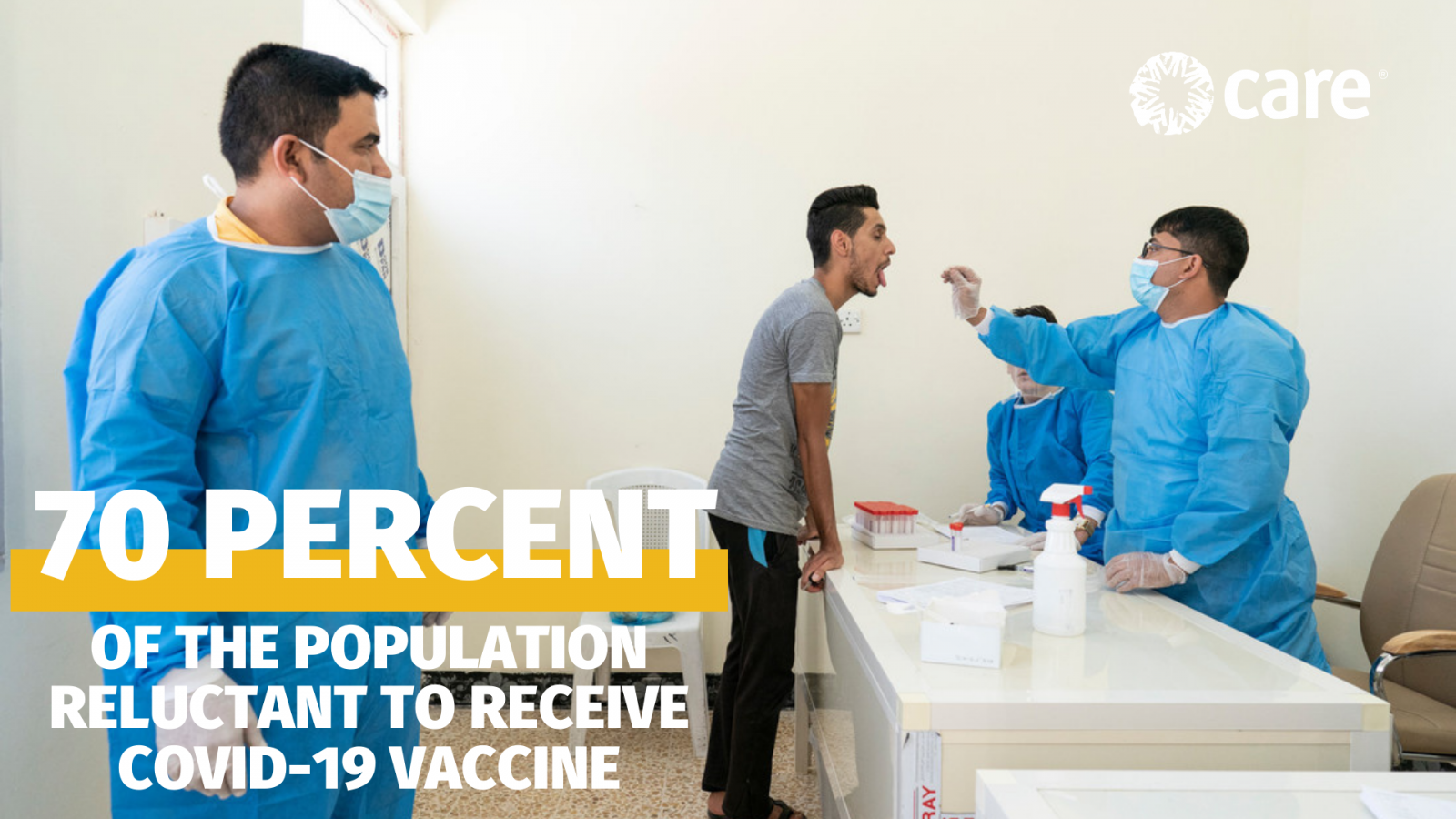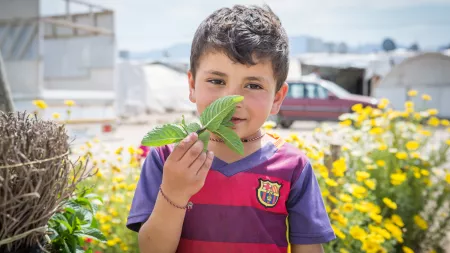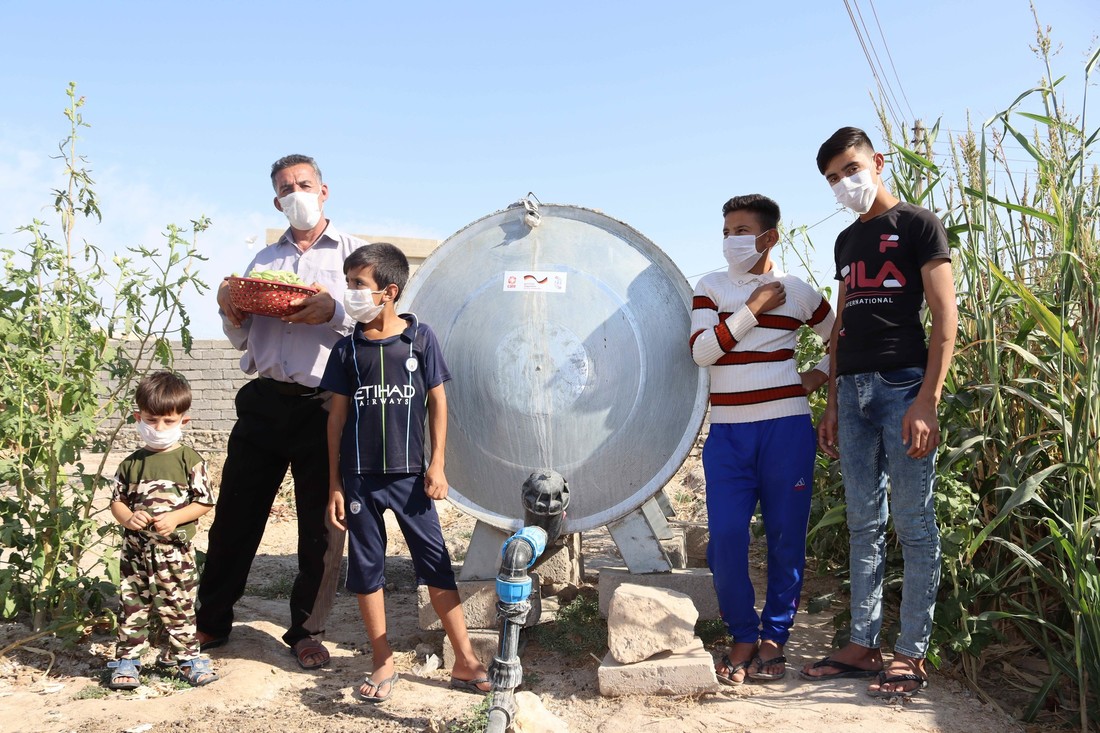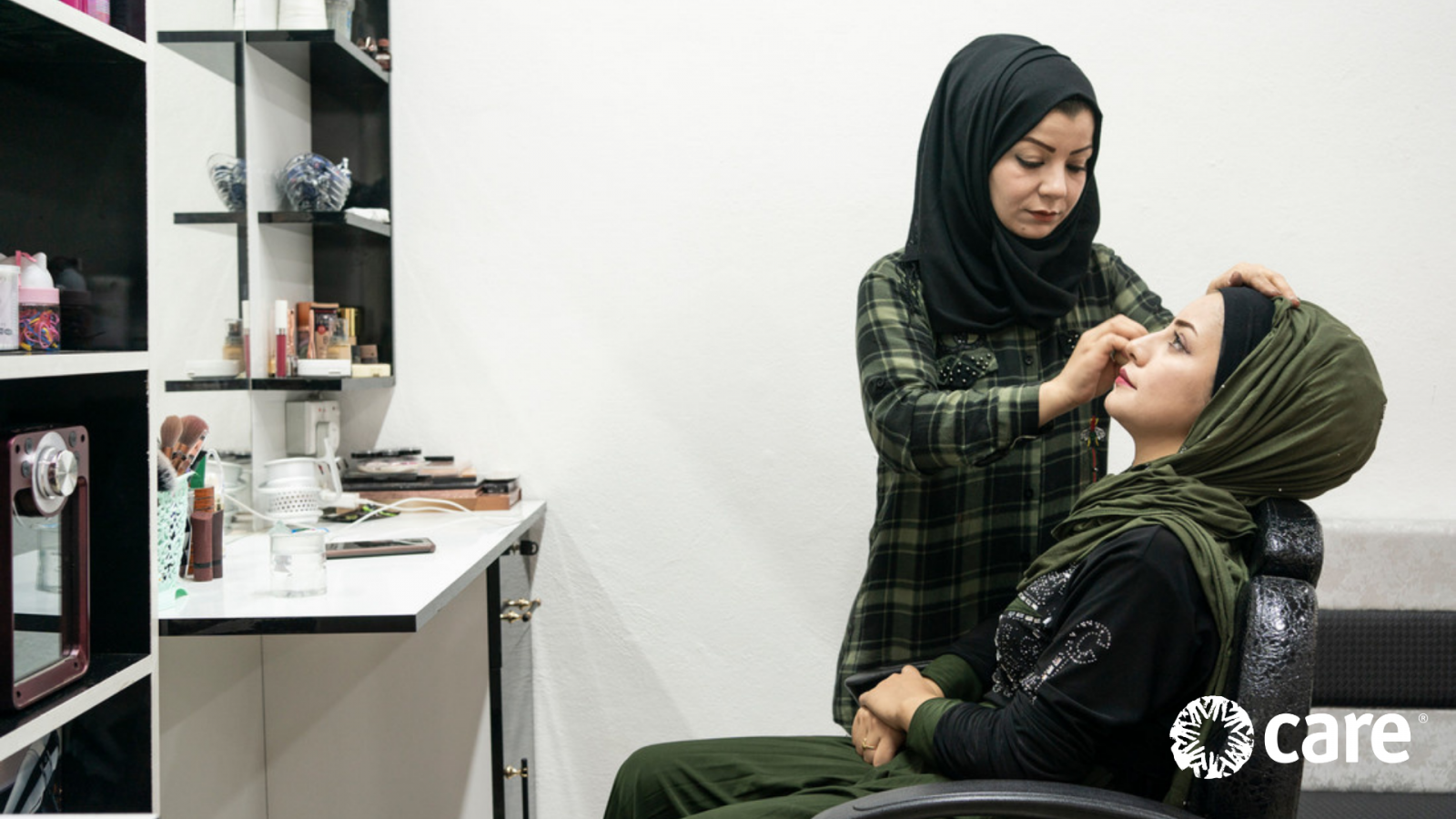
Fear and misinformation about vaccination puts Iraqi population at risk, new CARE study warns
A recent study by the humanitarian organization CARE in Iraq found that almost 70 percent of the population is reluctant to receive a COVID-19 vaccine.

 Middle East, North Africa and Europe
Middle East, North Africa and Europe
Iraq ranks 123 out of 189 on the Human Development Index (HDI). CARE International reopened its programming in Iraq in 2014 and works with national partners to deliver humanitarian assistance and long-term recovery support to vulnerable communities.
CARE International reopened its programming in Iraq in 2014 after a military offensive in Nineveh displaced hundreds of thousands of people into the Kurdish Region of Iraq.
Together with national partners, we deliver humanitarian assistance and long-term recovery support to the most vulnerable populations, primarily in Mosul and other areas of Northern Nineveh.
Since the outbreak of COVID-19 in 2020, CARE Iraq has been adapting its water, sanitation and hygiene, health, livelihoods, and gender activities.
We have delivered awareness messaging through door-to-door visits, text messaging and social media platforms. In addition, health facilities have been equipped with laboratory supplies, disinfectant, and personal protection equipment.
To mitigate and prevent gender-based violence, CARE Iraq has also been providing information on referral pathways and support services available in different regions.

A recent study by the humanitarian organization CARE in Iraq found that almost 70 percent of the population is reluctant to receive a COVID-19 vaccine.
Dohuk/Berlin, July 9, 2020. With more than 62,000 infections and over 2,500 related deaths[i], Covid-19 is pushing vulnerable communities in Iraq on the brink of survival. Highly vulnerable communities, including 1.4 million internally displaced people, are most at risk, warns CARE International.
A further decrease in funding of humanitarian activities in Northern Iraq could put countless people’s lives at risk, warns the international aid organization CARE.

If your child could learn one thing in school that would take a weight off your mind, what would it be? What would make you feel actively relieved knowing your child had that skill? Negotiation? Self-confidence? Something else?

In August 2014, hundreds of thousands of people were forced to flee from the Sinjar mountains when armed groups attacked the region. At the peak of the crisis, more than 6 million people were living in camps and host communities across Northern Iraq. Zubaida and Jihan are both graduates of a CARE job training program.

“How much is 80 litres of water? If you live in an older house, it’s a 4-minute shower.”
CARE Iraq conducted a study with 3,770 people in Ninewa and Duhok in mid-July 2021. The data specifically looks at the needs of marginalized people, and covers refugee, internally displaced people (IDPs), returnee, and host communities in several districts in each governorate. To complement the quantitative data, qualitative data was collected from community focus group discussions and interviews with key health personnel to understand people’s knowledge, attitudes, and practices about COVID-19 vaccines.
In FY2023, CARE worked around the world, contributing to saving lives, fighting poverty, and increasing social justice.